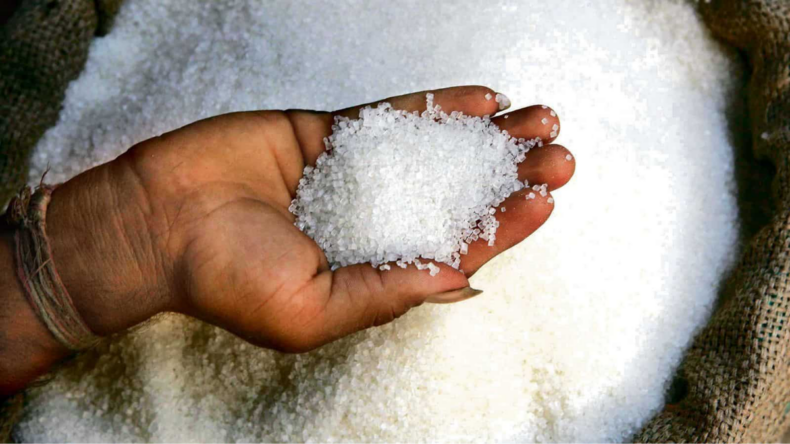A complaint was filed by three countries, namely Brazil, Australia and Guatemala. Subsequently, a dispute settlement panel was set up, which found out that India’s domestic support and export subsidy measures involving the sugar sector were violative of the rules under the international trade regime.
India has denied the findings, said its policies about the sugar sector would not be affected, and that it would file an appeal against the results.
How the process began at WTO?
The three countries, i.e. Australia, Brazil and Guatemala, filed a complaint in July 2019 stating that “support allegedly provided by India in favour of producers of sugarcane and sugar (domestic support measures and all export subsidies that India allegedly provides for sugar and sugarcane).
In its meeting in August 2019, the DSB officially set up three panels to inspect, considering the relevant provisions of the respective agreements put forth by the parties involved in the dispute. The panels will assist the DSB in making the recommendations.
Thomas Cottier of the World Trade Institute at the University of Bern was appointed as the chairperson of the three panels, and Gerda Van Dijk and Roberto Zapata Barradas were named members of the panels.
Also, twelve countries — including the United States, China, Japan, and Canada — and the European Union decided to be a third party in all the proceedings.
The panel organized the organizational meeting involving the parties in November 2019, but due to Covid-19, the first substantial meeting could be held in December of 2020. After many written submissions and discussions, the panel issued the final report in September 2021.
The complaint against India
Australia, Brazil, and Guatemala contended that India’s domestic support and export subsidy regime was violative of the various provisions under articles of WTO’s Agreement on Agriculture and the Agreement on Subsidies and Countervailing Measures (SCM), and Article XVI (relates to subsidies) of the General Agreement on Trade and Tariffs (GATT).
All three countries protested that India grants domestic support to sugarcane producers that surpasses the de minimis level of 10% of the total value of sugarcane production, which they stated was conflicting with the Agreement on Agriculture.
Australia accused India of not notifying its annual domestic support for sugarcane and sugar after 1995-96, and its export subsidies were inconsistent with the provisions of the SCM Agreement.
What did India tell the WTO panel?
The views put before the panel were that the complainants could not clarify that India’s market price support for sugarcane and other schemes breached the agriculture agreement.
Panel’s findings
In the case of India supporting sugarcane producers at the domestic level, the panel discovered that for five successive years, 2014-15 to 2018-19, India gave non-exempt product-specific support to nearly 10% excess of the permitted level of entire sugarcane produce. India was found inconsistent with its obligations under article 7.2(b) of the Agreement on agriculture.
To summarise, the debate was whether ‘market price support ‘only existed if the government paid the price or procured the relevant agricultural product.
Although India placed their side that the mandatory prices were not paid by centre or state but by sugar mills with this not contributing directly to market price support. The panel refused to accept the argument by implying that market price support does not necessarily mean obtaining or purchasing the product.
Panel recommendations
The panel recommended that India try to bring its WTO-inconsistent measures into conformity with its specified obligations under the Agreement on Agriculture and the SCM Agreement. Also, the board asked India to withdraw its prohibited subsidies relating to production assistance, buffer stock, etc., within 120 days from the report’s adoption.
Government’s response
Responding to the WTO panel’s ruling, the Union Ministry of Commerce and Industry on Tuesday said that the panel’s findings were “fully inferior” to India.
Australia, Brazil, and Guatemala “had incorrectly claimed that domestic support handed by India to sugarcane directors is in excess of the limit allowed by the WTO and that India provides banned import subventions to sugar manufactories”, the Ministry said. The panel’s findings were “erroneous”, “unreasoned”, and “not supported by the WTO rules”, it said.
“The Panel has also finessed crucial issues which it was obliged to determine. Also, the panel’s findings on alleged import subventions undermines sense and explanation.”
Will the panel findings impact India’s sugar assiduity or sugarcane growers?
The Ministry admitted that there would be “no impact” on India’s “ongoing policy measures” in the sugar sector. “India has initiated all measures necessary to cover its interest and train an appeal at the WTO against the report, to cover the interests of its growers,” it said in a statement. “India believes that its measures are harmonious with its scores under the WTO agreements.”













